

WIRRAL PAVING
BLOCK PAVING FOR DRIVEWAYS
Block or brick "sets" should be at least 50mm thick in order to carry the weight of cars and light vans.
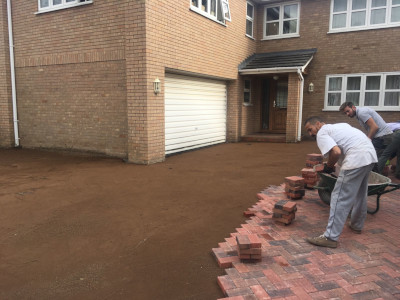
Before laying the blocks the site must be properly prepared:
First, the surface ground is excavated to a depth of at least 200mm. This may vary according to the nature of the ground.
A sub-base of aggregate (mixed sized stone chippings) 100-150mm thick is then laid, followed by 40mm thickness of sand bed which is then rolled and compacted.
Finally, the driveway blocks are laid in the desired pattern and thoroughly compacted

Of course, at the outset, consideration must be given to drainage. Poor drainage can significantly affect the stability of the finished wearing course (the paving). Drainage may simply be a matter of ensuring the drive has sufficient "fall" to allow natural rainwater run off. In some cases it will be necessary to lay proper surface water drains and connect them either to the mains drains or to a purpose constructed "soakaway".
A properly experienced driveway contractor will be able to advise you about this.
Sequence showing removal of old driveway material and finished new block paving.
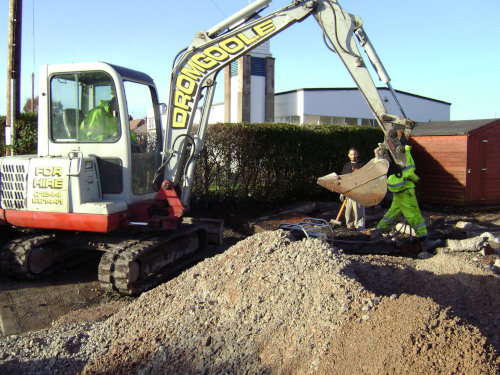
Breaking up existing old concrete drive and sub-surface.
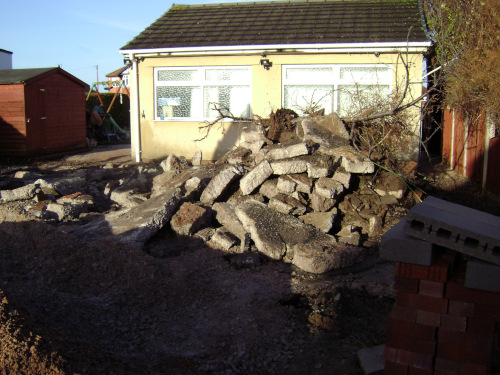
Broken up concrete ready for carting away.
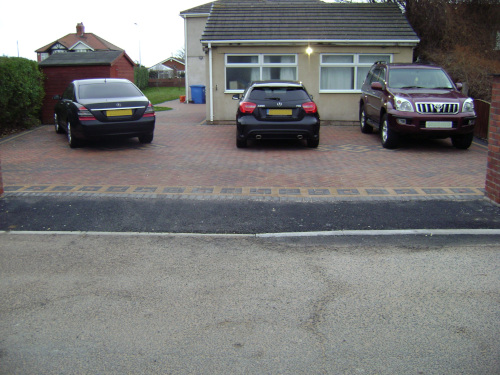
Finished job: block paved driveway and paths.
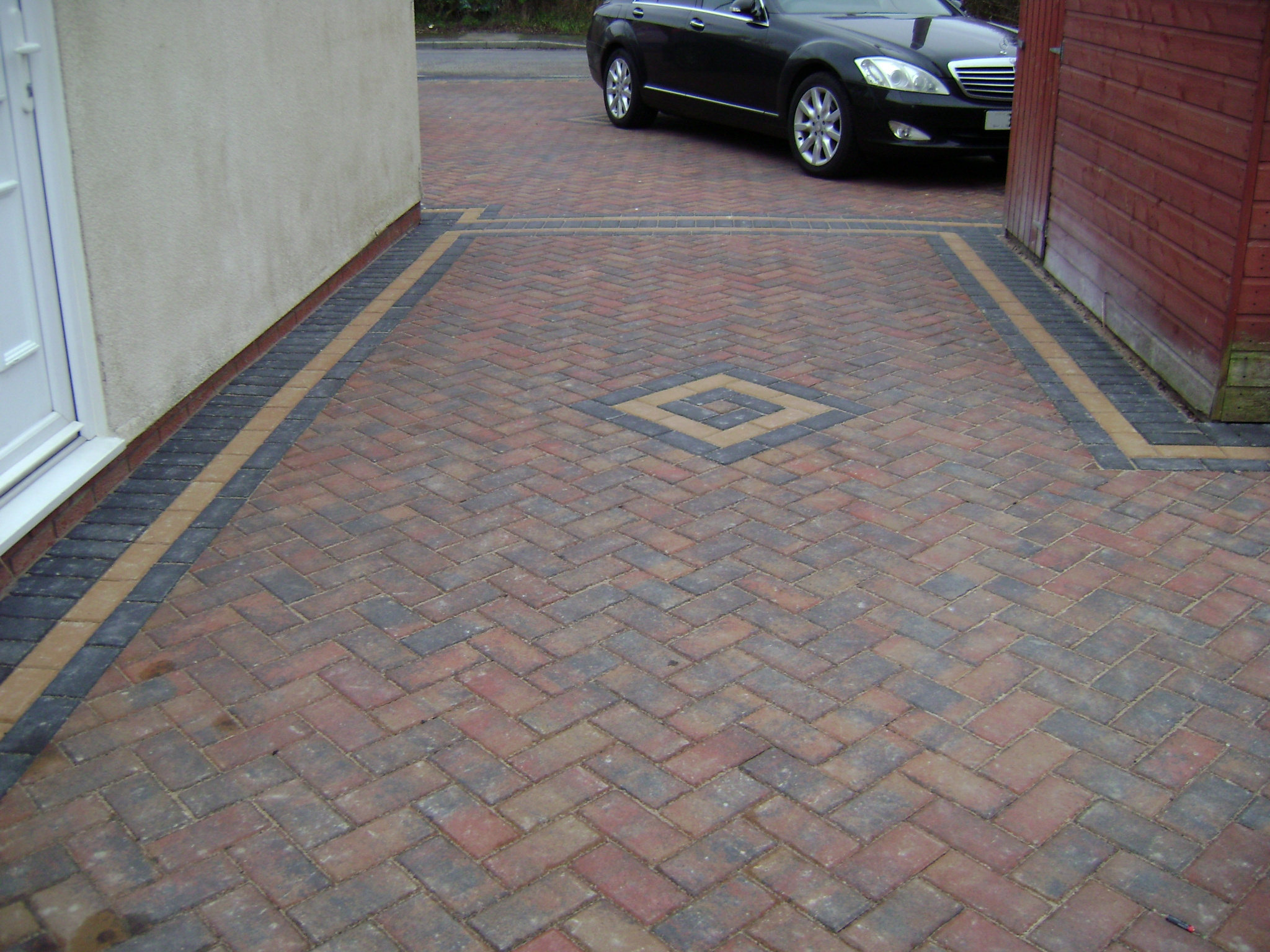
Pathways and driveways.
Driveway paving sets are available in a range of textures and materials, for example: clay brick, composite (concrete) brick effect, granite
Driveway paving sets need to be thicker than paving for paths, patios and leisure areas, and the sub-base material must be thicker and well compacted.
A deeper excavation is required for driveway sub-base to allow for the thicker materials and to ensure that softer surface materials are removed.
The finished level of any paving should be a least 150 mm below the level any premises DPC (damp proof course).
Additionally edge restraints for driveways need to be sufficiently robust to withstand the lateral forces created by vehicle weights.
It is also possible to lay permeable paving which allows rainwater to drain safely into the surroiunding water table without damage to thedriveway sub-base layer. This reduces the requirement for separate surface water drains drainage and, by diverting water away from the local drains system reduces the likelihood of flooding.


